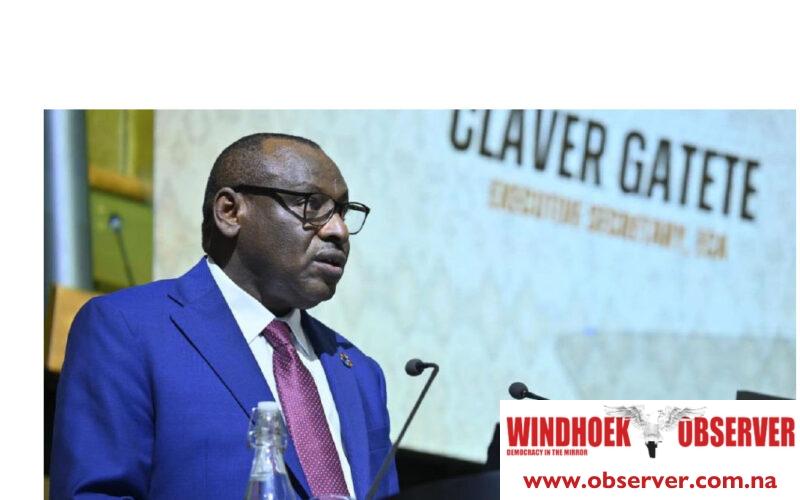Niël Terblanché
Despite growing optimism among African consumers, homegrown brands continue to lag in recognition, with the latest Brand Africa 100 rankings revealing that only 11 of the continent’s most admired brands are African, a historic low.
The 2025 results, released at a ceremony in Addis Ababa on Friday, reflect a stark mismatch between belief in Africa’s potential and actual support for African-made products.
Namibia, like many African countries, stands at a crossroads. While brands such as MTN and Dangote continue to command admiration, broader brand visibility and loyalty remain elusive.
The United Nations Under-Secretary-General and Executive Secretary of the Economic Commission for Africa (ECA), Claver Gatete, spoke at the event.
“We are no longer asking the world to change the narrative about Africa. We are taking charge. And we are owning the narrative,” he said.
Gatete urged countries to see branding not merely as a marketing effort but as part of a broader economic and cultural agenda.
“An authentic African brand must straddle the embodiment of Africa’s stories, cultures, and aspirations,” he said.
He also called attention to the continent’s assets, such as over 100 UNESCO World Heritage Sites, which offer not only tourism potential but also opportunities for creative content licensing and cultural pride.
The Brand Africa 100 report shows that while 68% of Africans believe in Africa’s future, a rise from 64% the previous year, this has not translated into consumer support.
Foreign brands continue to dominate, with Nike ranked as the most admired brand overall for the eighth consecutive year.
South Africa retained its position as the most admired national brand on the continent, while the United States, the United Kingdom, and China topped the list of most influential nations.
To reverse the current trend, Gatete proposed five strategic actions: investing in youth-driven innovation, strengthening regional value chains, integrating African brands into trade and investment strategies, building real-time data systems, and creating a pan-African creative innovation fund.
He added that platforms such as the African Continental Free Trade Area (AfCFTA) are key to transforming “Made in Africa” into a globally respected label.
“From the creative pulse of Lagos to the tech corridors of Nairobi, Africa is building and branding. But the question remains: why do so few African brands enjoy global visibility?” Gatete asked.
According to Gatete, Brand Africa will embark on a continent-wide roadshow to share insights and further the mission of a brand-led African renaissance.
“The ECA will continue to work alongside governments, the African Union, and private sector actors to reshape the African narrative and unlock the continent’s branding potential,” he said.
The founder and chairman of Brand Africa, Thebe Ikalafeng, called the findings a wake-up call.
“It’s not enough for Africans to say they believe in the continent—they must buy made-in-Africa. For that to happen, African brands must invest in R&D, continue to innovate, deliver quality, and use authenticity as a differentiator,” he said.
Ikalafeng said that while the continent prepares for upcoming forums such as the African Development Impact Forum later this year, the focus is expected to shift from rhetoric to measurable action, with Namibia among those expected to realign branding efforts with industrial, cultural, and economic development plans.




